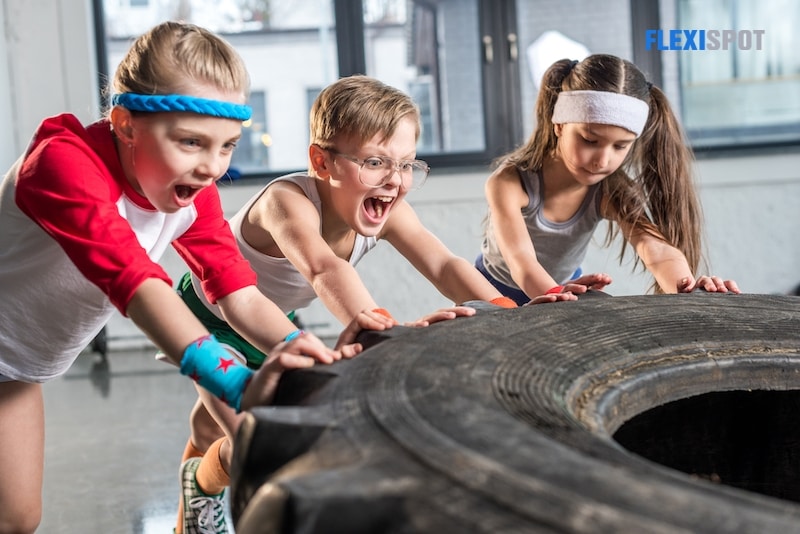As a parent, you might be excited to enrol your kids not only in school but also in extracurricular activities. You probably already have a list in your head of activities that you want your kid to try. While it’s best that we allow our kids’ wings to fly on their own, we can always push them in the right direction. This is especially true when they are still incapable of deciding for themselves. We sign them into what’s available, what we can afford, and what they can do at their age.
What’s important is to always be available, whether they decide to continue or quit, and to not pressure them into doing anything that they don’t want to do.
Benefits of Sports for Kids
1. Sports teach kids teamwork.
Kids are taught to do their part and to work in a team to achieve a common goal. This teaches kids to communicate and strategize with a team---taking into account one another’s unique strengths and weaknesses.
2. Sports instil discipline.
Kids need to show up on time for practices and games. They would have to reduce screen time and replace it with training that may not always be fun. They would have to follow a coach’s instruction and the games’ rules. The kid would learn that excellence at a sport requires discipline.
3. Sports builds self-esteem.
By practising often and seeing progress, your kid will start to develop confidence in his or her skills and abilities. Even small achievements throughout the year can build self-esteem that would also cascade to other aspects of life.
It is important that self-esteem is not associated with winning or losing a game. A parent’s role is to always ask the kid if he or she had fun and not focus on victory or defeat. Plus, the parent should open communication channels about accepting one’s limits but also working towards improving one’s weaknesses.
4. Sports teaches the value of defeat.
Kids would learn early on that they don’t always get what they want in life. There will be times that they will lose, and that’s okay. They will learn to see defeat as a learning opportunity to know what to do better next time and what to work on for better performance.
5. Sports open friendships, connections for your kid.
Your kid will be spending most of his or her time in practice which means he or she will be meeting new people and making new friends. If they compete in a different state, there is also more opportunity to connect with other people. Friendship is also solidified through camaraderie, loyalty, and teamwork developed in sports.
6. Sports help develop stronger bones and muscles.
Studies show that kids who are enrolled in sports early on are less prone to injury because they grow to have stronger bones and muscles. Their bodies develop in a healthy way that would be perfect for future growth.
7. Sports help develop motor skills.
Kids enrolled in sports have better body coordination and a wider brain capacity to learn new skills.
Considerations
1. Is your kid interested in your chosen sport? Before anything else, the most important question is your kid’s interest.
2. Does the sport fit your child’s ability? As a parent, you’ve seen your child grow from birth to his or her first years. You should have a grasp of what he or she is good at and take this into consideration.
3. How much time will it require for you as a parent? You need to drive and fetch your kid to and fro practice. You need to be present during games.
4. Can you afford it? Enrolling your kid in a sport will not only require time and commitment but also money.
5. How will the sport affect your other kids? The schedule must be worked out; you must be prepared to divide your time for all your kids as equally as possible.
6. Is the sport safe? Check the equipment used and if the program comes with insurance should your kid get injured.
How to Get Your Child Interested in Sports
There are multiple ways you could get your child to be interested in sports or an active lifestyle. Here are some:
1. Live an active lifestyle yourself. If your kid sees your commitment to exercise yourself, he or she is most likely to pick it up as well.
Don’t have time? You may always opt to use a desk bike at home. The Sit2Go 2-in-1 Fitness Chair from Flexispot offers a comfortable seat cushion and backrest while having a reliable, whisper-like pedalling system. You may also adjust the different resistance levels to challenge yourself as you progress and become stronger.
2. Pick a sport that you can play with your kid. It can be your pastime together where you just run a mile at the park together or play badminton at your garage.

3. Control time for sedentary activities. Make sure you set rules for screen time such as how long they can watch TV or play with their iPads. Having a height-adjustable standing desk at their study or playroom also helps. They can easily shift from standing to sitting with just one press of a button. The desktop of the SD1 Ergonomic study desk from Flexispot can easily be adjusted from 550 mm for short children to 890 mm for taller ones. It comes with a two-button control panel that your kid can easily learn to use.
4. Be present in every game, match, or competition. If it clashes with your schedule, make sure to let your kid know your full support. Give words of encouragement after the match and follow up right away.
Final Thoughts
Getting your kid involved in sports helps set them up for the future. They are taught valuable lessons and skills they could apply in life. It’s important to support the kid no matter what, even if he or she no longer finds the sport fun.



